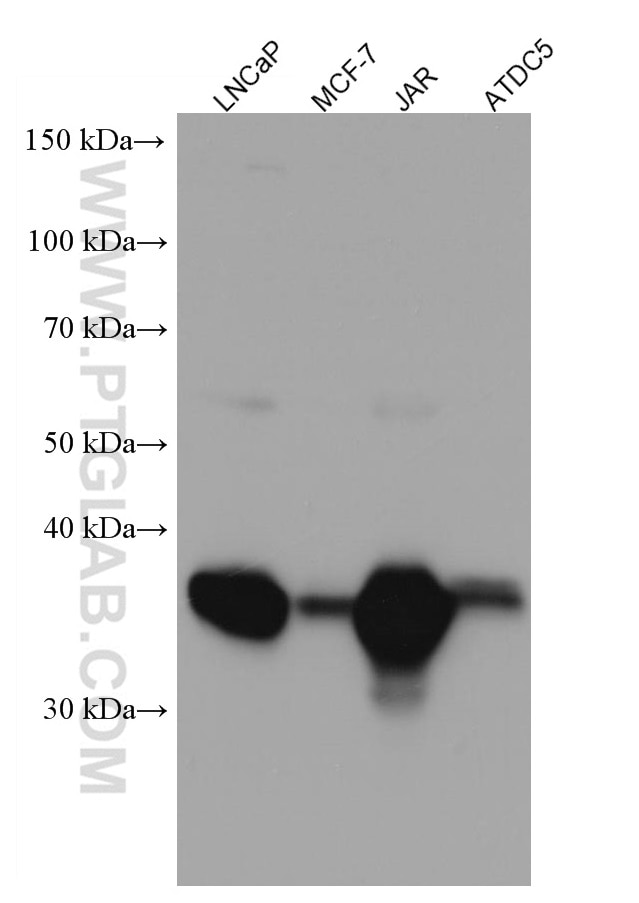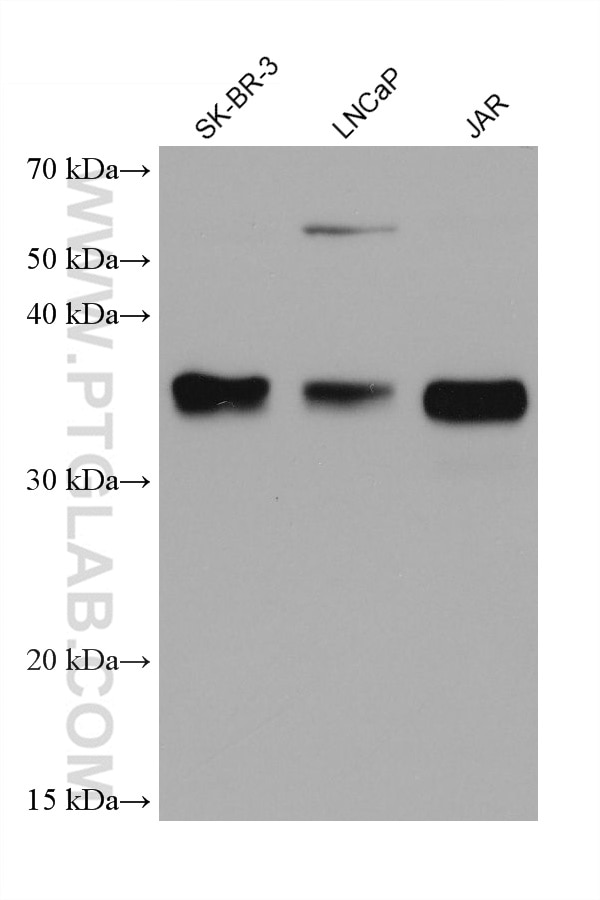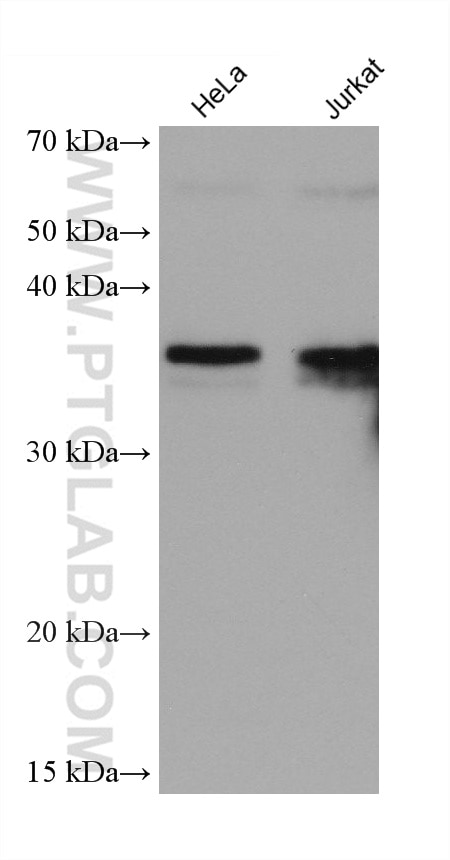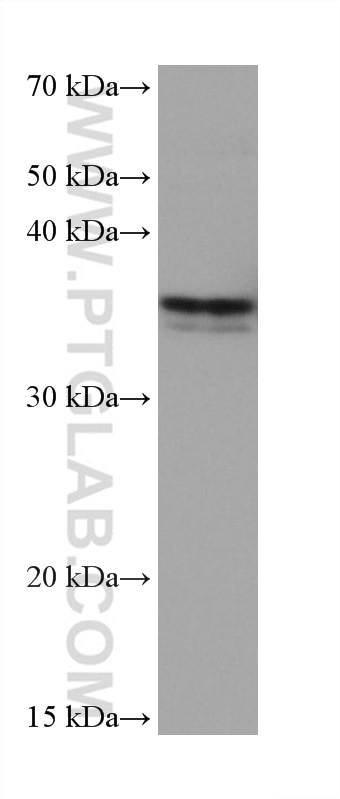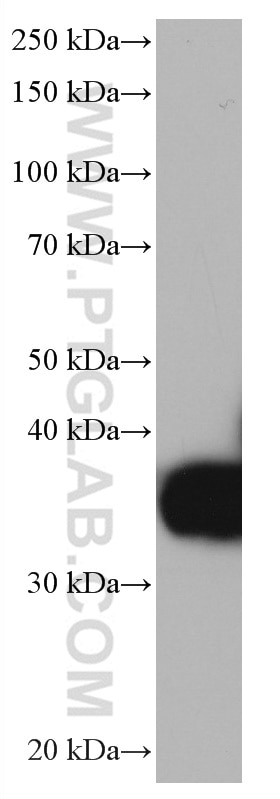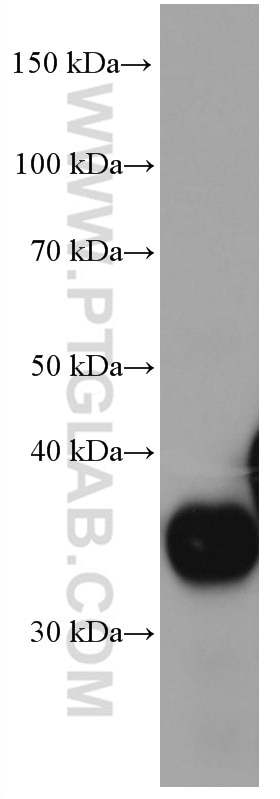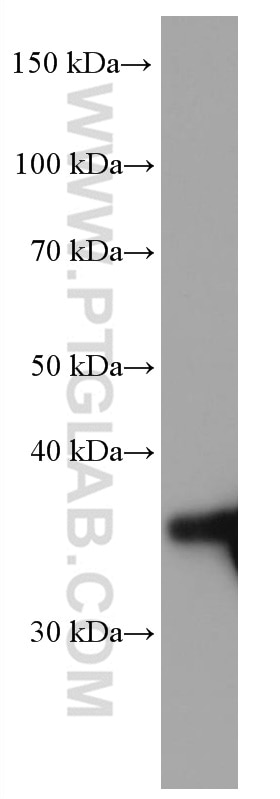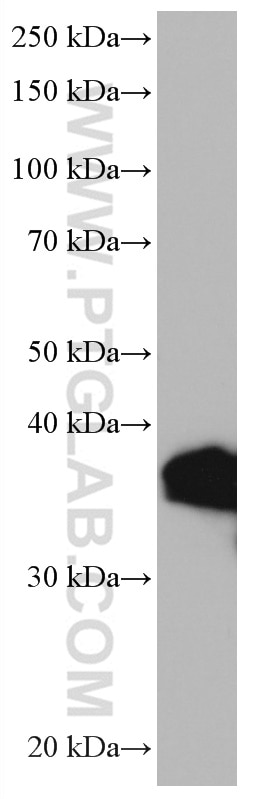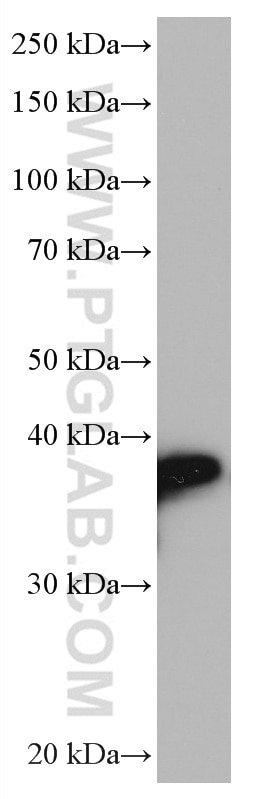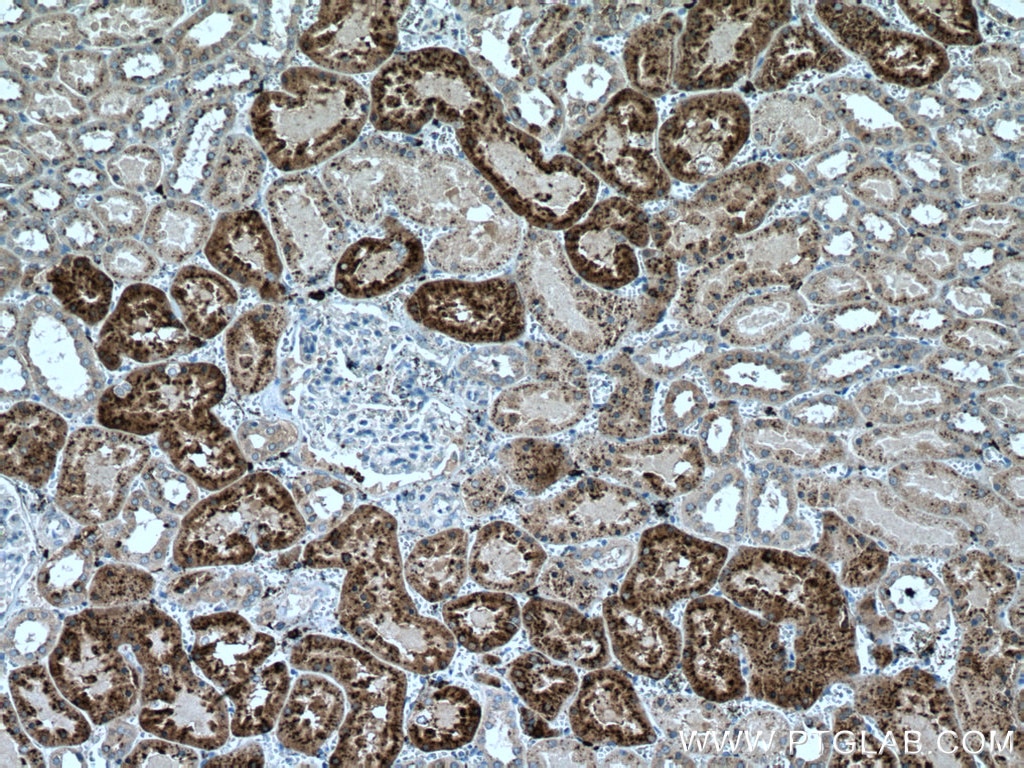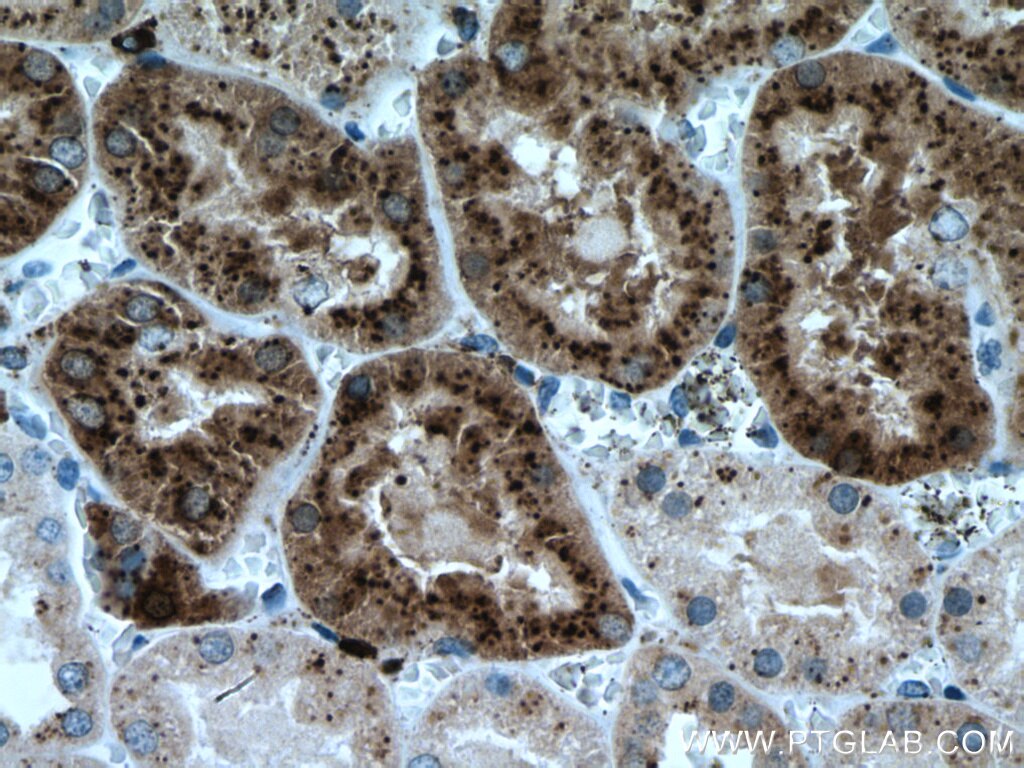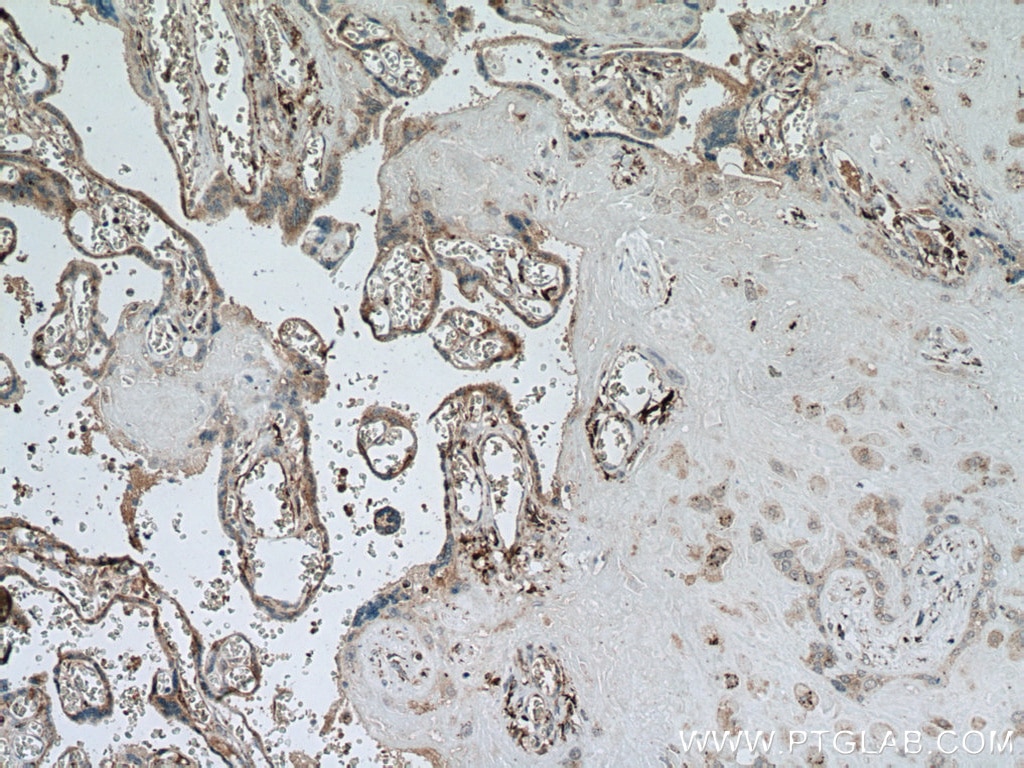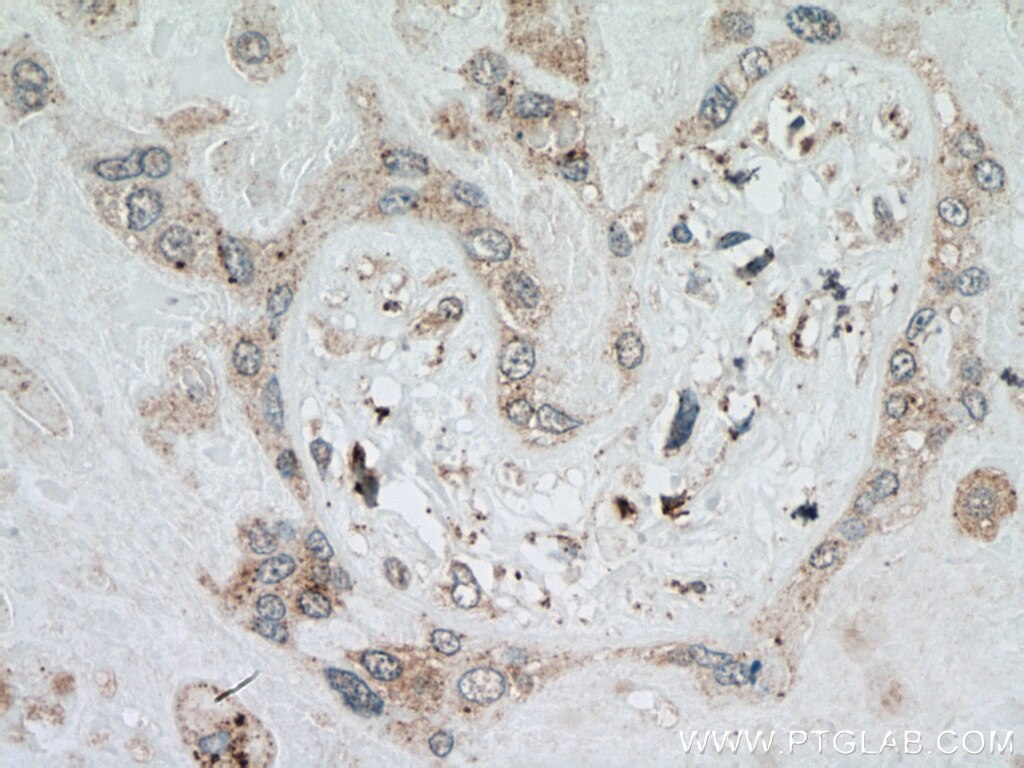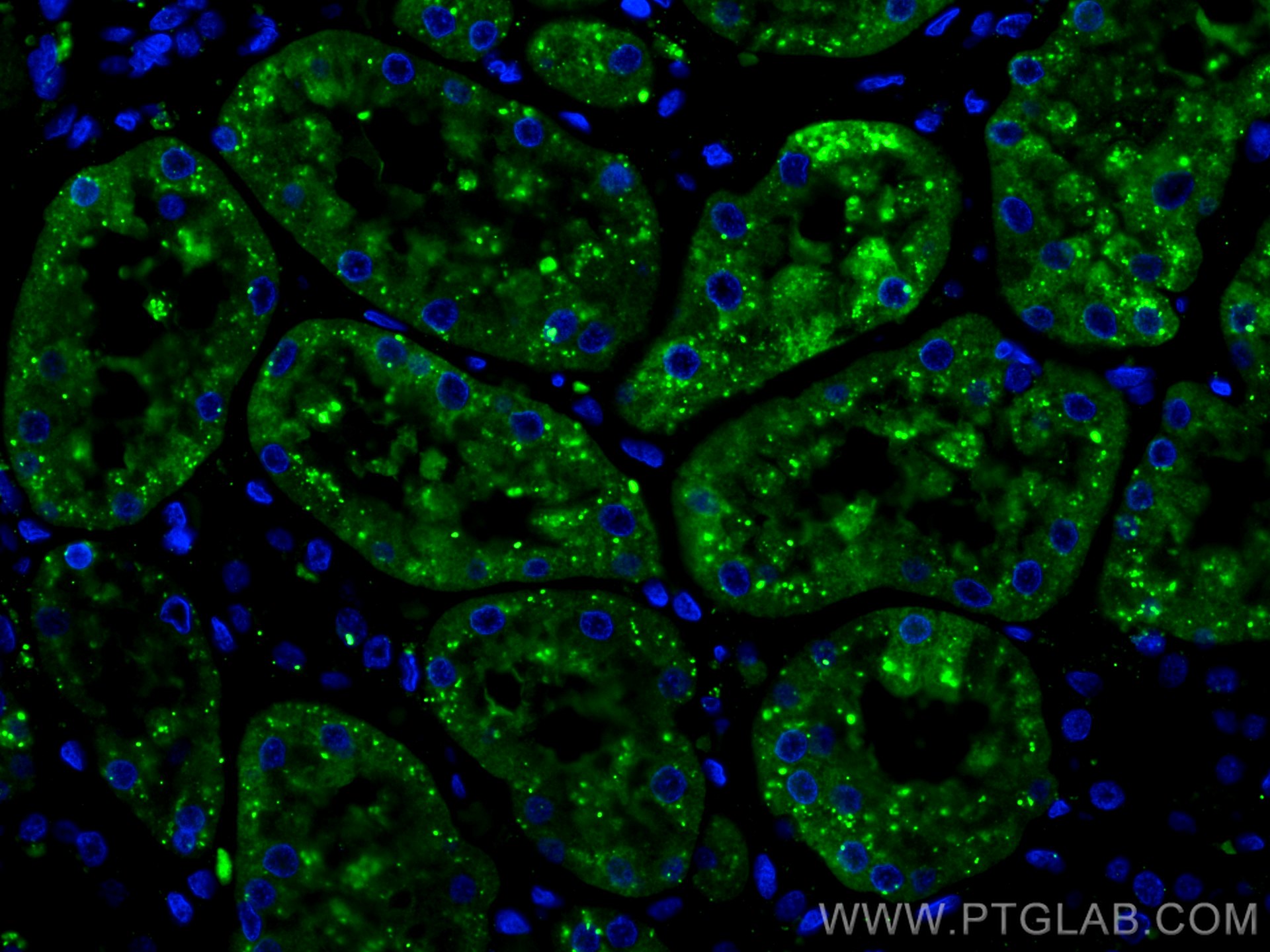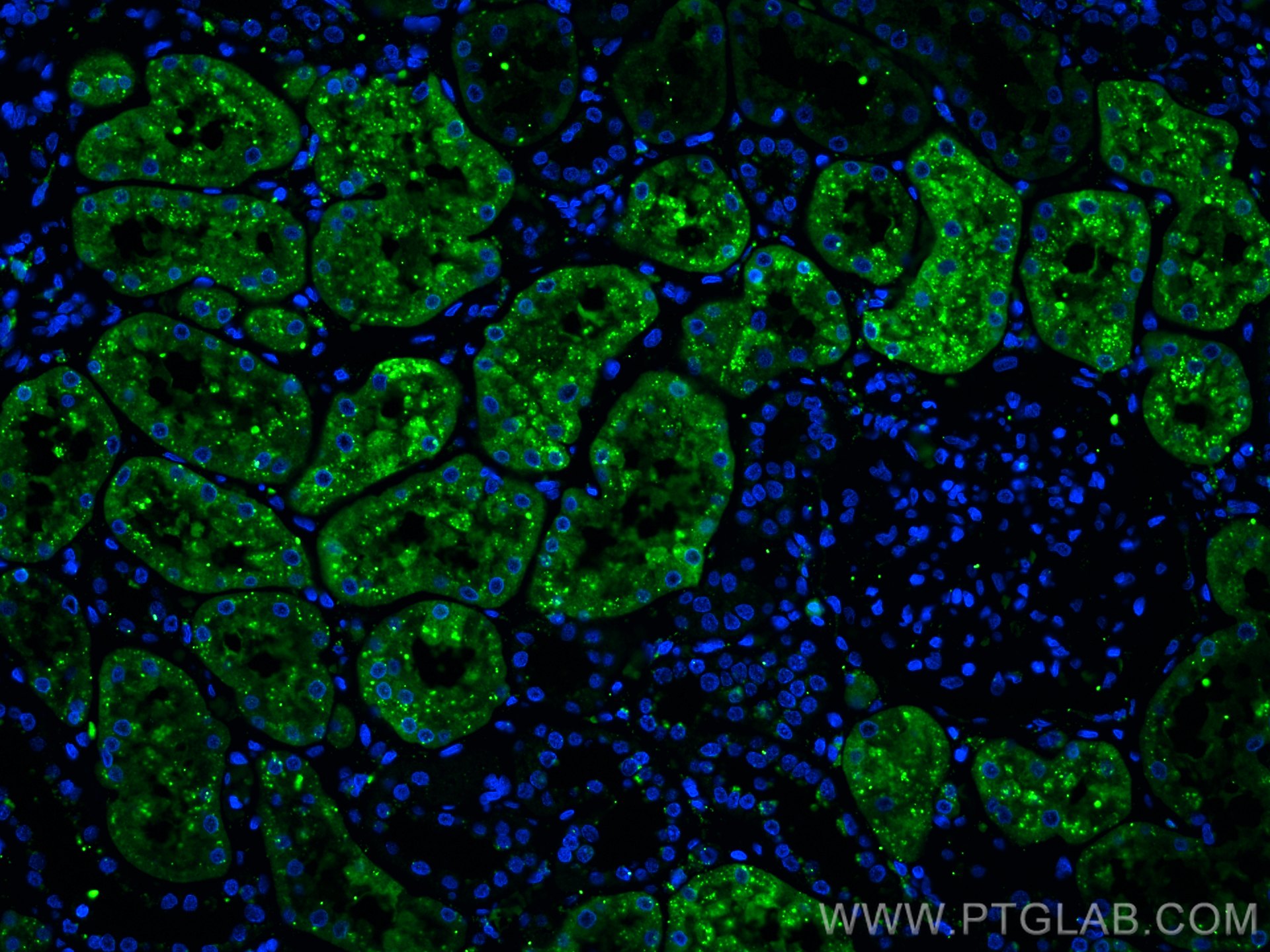Tested Applications
| Positive WB detected in | SK-BR-3 cells, HEK-293 cells, NCCIT cells, pig kidney tissue, HeLa cells, MCF-7 cells, LNCaP cells, human placenta tissue, JAR cells, Jurkat cells, ATDC-5 cells |
| Positive IHC detected in | human kidney tissue, human placenta tissue Note: suggested antigen retrieval with TE buffer pH 9.0; (*) Alternatively, antigen retrieval may be performed with citrate buffer pH 6.0 |
| Positive IF-P detected in | human kidney tissue |
Recommended dilution
| Application | Dilution |
|---|---|
| Western Blot (WB) | WB : 1:5000-1:50000 |
| Immunohistochemistry (IHC) | IHC : 1:150-1:600 |
| Immunofluorescence (IF)-P | IF-P : 1:200-1:800 |
| It is recommended that this reagent should be titrated in each testing system to obtain optimal results. | |
| Sample-dependent, Check data in validation data gallery. | |
Published Applications
| KD/KO | See 1 publications below |
| WB | See 8 publications below |
| IHC | See 2 publications below |
Product Information
67017-1-Ig targets LGMN in WB, IHC, IF-P, ELISA applications and shows reactivity with Human, pig, mouse samples.
| Tested Reactivity | Human, pig, mouse |
| Cited Reactivity | human, mouse |
| Host / Isotype | Mouse / IgG1 |
| Class | Monoclonal |
| Type | Antibody |
| Immunogen |
CatNo: Ag7218 Product name: Recombinant human LGMN protein Source: e coli.-derived, PET28a Tag: 6*His Domain: 82-433 aa of BC003061 Sequence: TPGIVINRPNGTDVYQGVPKDYTGEDVTPQNFLAVLRGDAEAVKGIGSGKVLKSGPQDHVFIYFTDHGSTGILVFPNEDLHVKDLNETIHYMYKHKMYRKMVFYIEACESGSMMNHLPDNINVYATTAANPRESSYACYYDEKRSTYLGDWYSVNWMEDSDVEDLTKETLHKQYHLVKSHTNTSHVMQYGNKTISTMKVMQFQGMKRKASSPVPLPPVTHLDLTPSPDVPLTIMKRKLMNTNDLEESRQLTEEIQRHLDARHLIEKSVRKIVSLLAASEAEVEQLLSERAPLTGHSCYPEALLHFRTHCFNWHSPTYEYALRHLYVLVNLCEKPYPLHRIKLSMDHVCLGHY Predict reactive species |
| Full Name | legumain |
| Calculated Molecular Weight | 49 kDa |
| Observed Molecular Weight | 36 kDa |
| GenBank Accession Number | BC003061 |
| Gene Symbol | LGMN |
| Gene ID (NCBI) | 5641 |
| RRID | AB_2882333 |
| Conjugate | Unconjugated |
| Form | Liquid |
| Purification Method | Protein G purification |
| UNIPROT ID | Q99538 |
| Storage Buffer | PBS with 0.02% sodium azide and 50% glycerol, pH 7.3. |
| Storage Conditions | Store at -20°C. Stable for one year after shipment. Aliquoting is unnecessary for -20oC storage. 20ul sizes contain 0.1% BSA. |
Background Information
LGMN (Legumain), also known as asparaginyl endopeptidase or AEP, is a broadly expressed lysosomal cysteine endopeptidase that belongs to peptidase family C13 and specifcally hydrolyzes substrate asparaginyl bonds (PMID: 9065484). LGMN directly regulates diverse physiological and pathological processes by remodeling tissue-specific targets (PMID: 25205715, 21292981, 18820679). In addition, LGMN indirectly contributes to atherosclerotic plaque instability through activation of cathepsin L in the arterial ECM (PMID: 19671471, 18377911). LGMN is secreted as inactive prolegumain (56 kDa) and processed into enzymatically active 46 and 36 kDa forms, as well as a 17 kDa enzymatically inactive C-terminal fragment (PMID: 28162997, PMID: 19671471).
Protocols
| Product Specific Protocols | |
|---|---|
| IF protocol for LGMN antibody 67017-1-Ig | Download protocol |
| IHC protocol for LGMN antibody 67017-1-Ig | Download protocol |
| WB protocol for LGMN antibody 67017-1-Ig | Download protocol |
| Standard Protocols | |
|---|---|
| Click here to view our Standard Protocols |
Publications
| Species | Application | Title |
|---|---|---|
J Control Release A "dual-guide" bioinspired drug delivery strategy of a macrophage-based carrier against postoperative triple-negative breast cancer recurrence. | ||
Front Microbiol A replicative recombinant HPV16 E7 expression virus upregulates CD36 in C33A cells | ||
Int J Pharm Macrophage-mediated multi-mode drug release system for photothermal combined with anti-inflammatory therapy against postoperative recurrence of triple negative breast cancer. | ||
Int J Biol Sci Legumain Promotes Gastric Cancer Progression Through Tumor-associated Macrophages In vitro and In vivo. | ||
Exp Eye Res Legumain affects the PI3K/AKT tumor progression pathway in retinoblastoma
| ||
Bioconjug Chem Legumain-Triggered Macrocyclization of Radiofluorinated Tracer for Enhanced PET Imaging |

